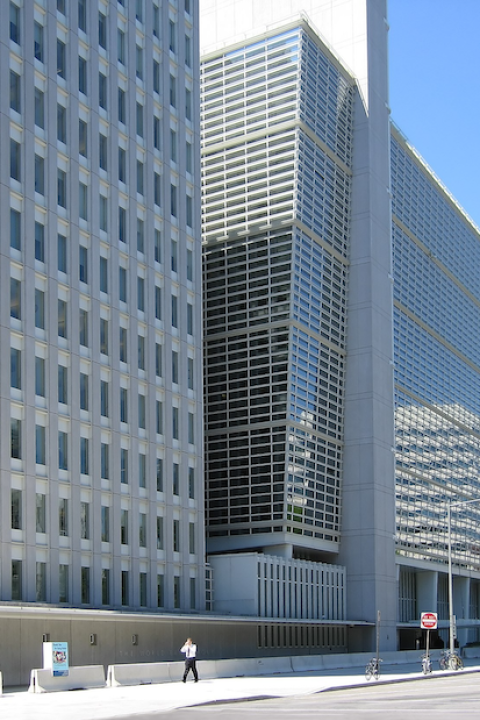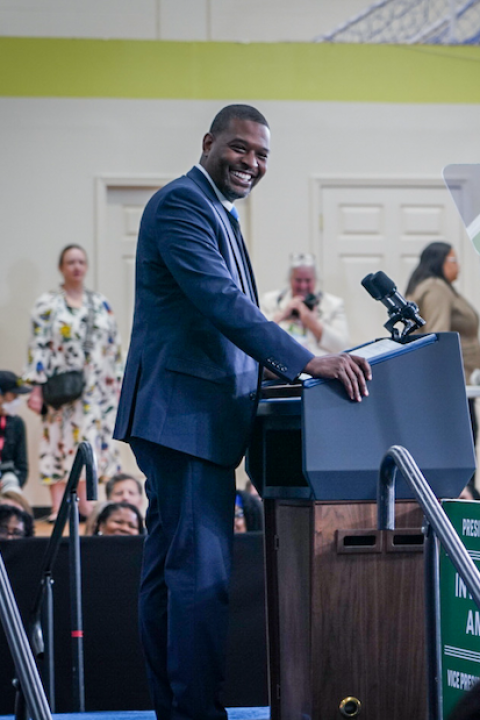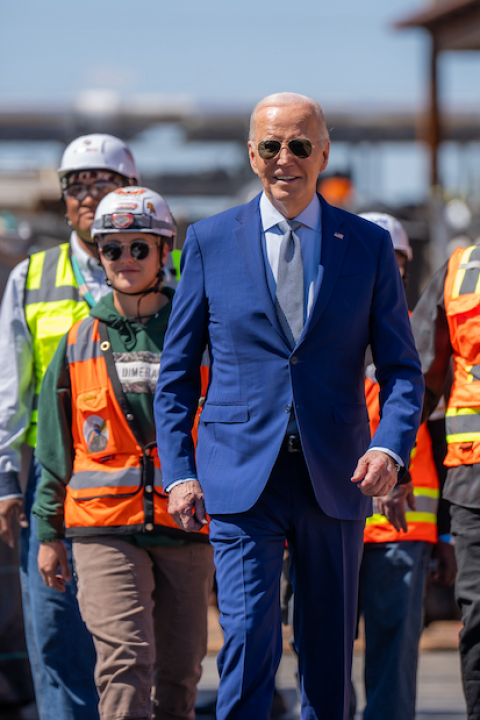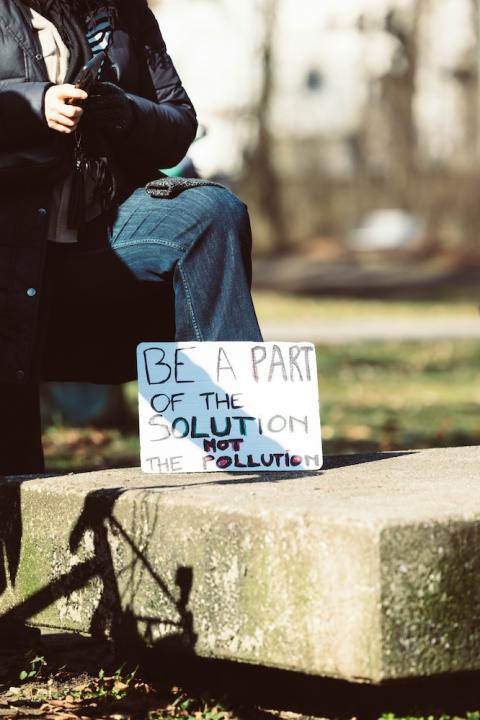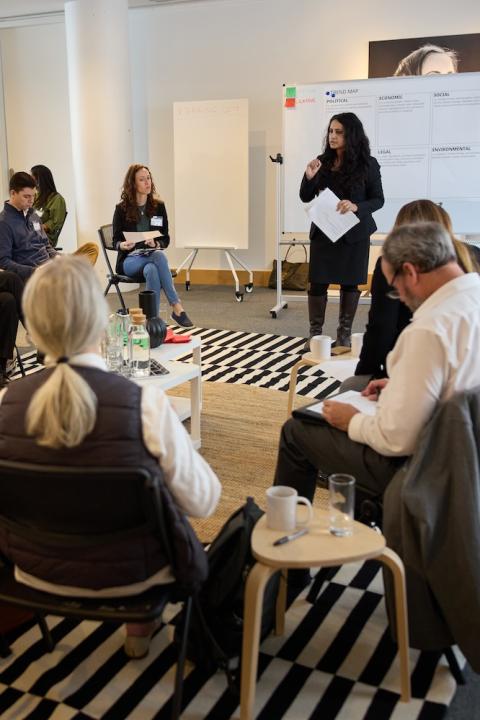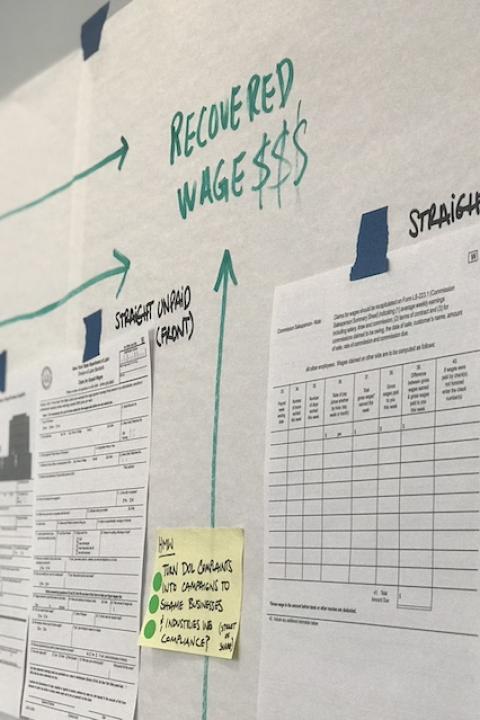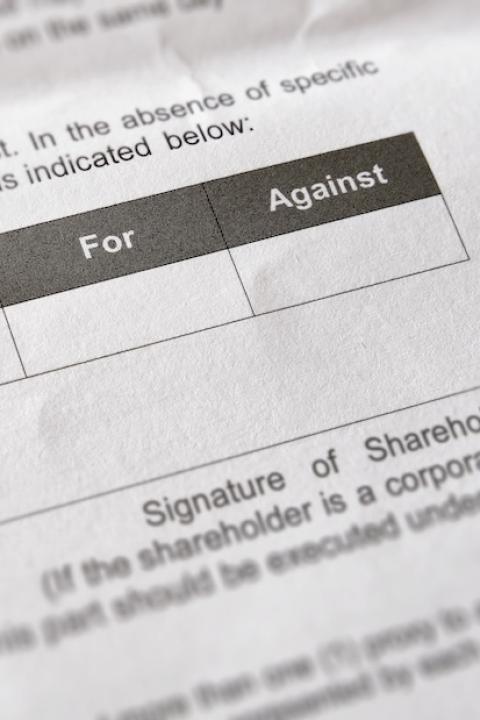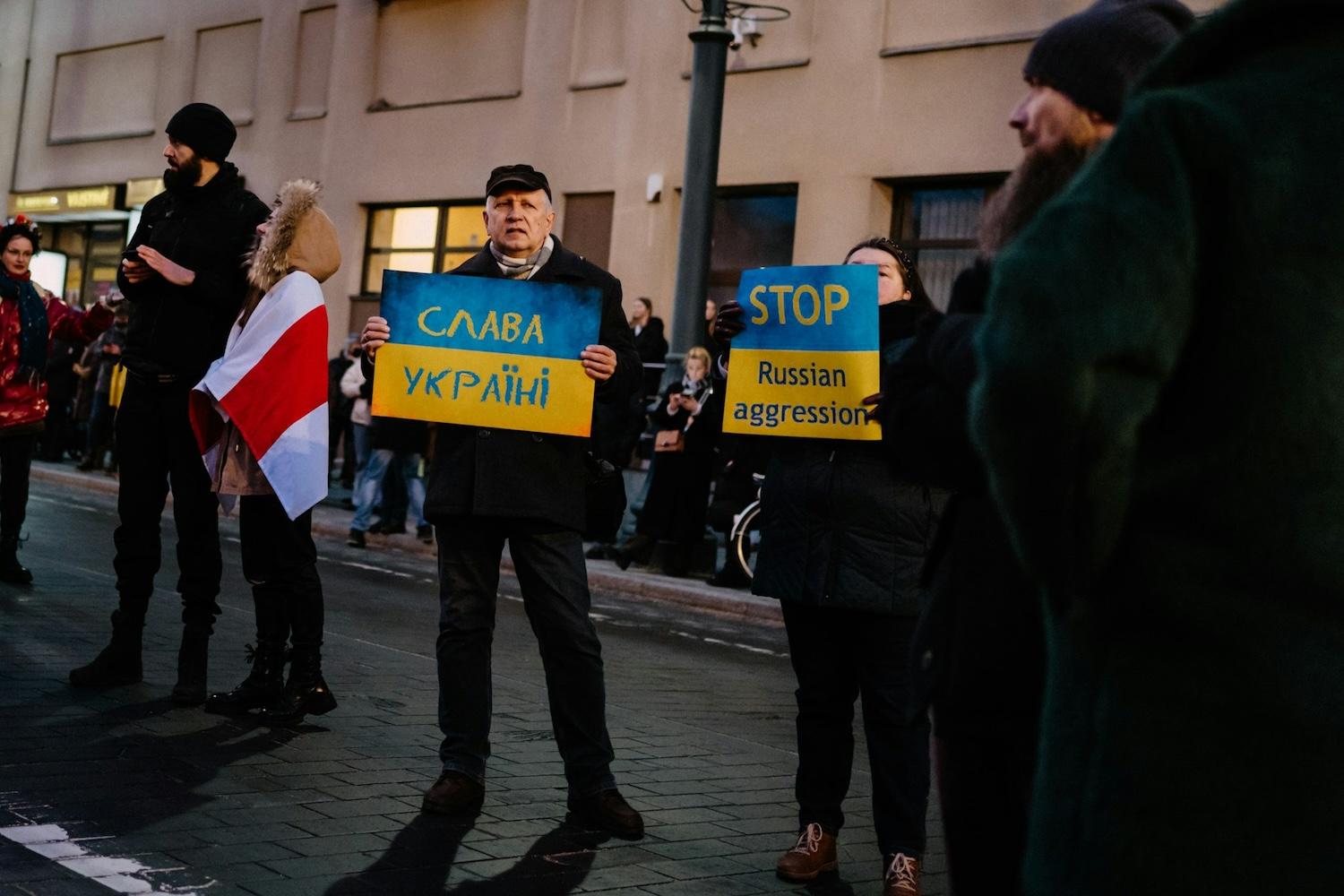
Lithuanian people protesting agains Russian invasion of Ukraine in February 2022. (Image: Dovile Ramoskaite/Unsplash)
Hundreds of leading brands and other companies stopped doing business in Russia after its unprovoked invasion of Ukraine in 2022. Despite the boycott, the war dragged on for more than two years with no end in sight. In that context, it may be fair to ask if the boycott has had an impact. However, the real question is whether businesses have any choice but to act as best they can when confronted by authoritarian power.
Two options: Boycott, or stay and risk a takeover
Last week, Russian President Vladimir Putin summarily seized companies belonging to the agribusiness AgroTerra. The company's assets were placed under the temporary management of the Russian federal property management agency Rosimushchestvo, Bloomberg reported.
AgroTerra operates within Russia, but it is owned by the U.S. investment firm NCH Capital as part of a longstanding interest in Eastern European agriculture. Founded in 2008, AgroTerra operates farms in the fertile Central Black Soil region south of Moscow that provide commodity and specialty crops to food processors.
Arguably, companies that support important food systems have ethical reasons to continue operating, regardless of wartime. An April 9 report by Reuters suggests that AgroTerra falls into that category. As of May 2023, the company was listed among the top 20 agricultural landholders in Russia.
As of this writing, Putin’s new decree has not impacted AgroTerra operationally. The company told Reuters “it was operating as usual" and was primarily focused on sowing seeds for the coming season.
Still, the takeover is the most recent example of the risks that can come with a shift toward authoritarianism.
So, is the brand boycott against Russia working?
The news about AgroTerra and NCH is also important because it provides further evidence that the voluntary boycott has had a significant impact on Russia’s financial ability to wage war.
Days after Russia launched its attack on Ukraine in 2022, the Yale School of Management began keeping a meticulously researched database of non-Russian companies doing business in Russia. So far, almost 1,000 of the 1,500 companies in the Yale database are listed as completely withdrawn. Others have cut back their operations, while some receive an “F” grade for continuing business as usual.
By May 2022, the Yale team gathered enough data to conclude that those withdrawing from Russia realized long-term financial benefits, despite the risk of loss. “We find that equity markets are actually rewarding companies for leaving Russia while punishing those that remain behind,” they summarized on May 31, 2022.
A few months later, the team noted evidence that the voluntary boycott was working in support of international sanctions against Russia. “Far from being ineffective or disappointing, as many have argued, international sanctions and voluntary business retreats have exerted a devastating effect over Russia’s economy,” they reported.
Still, as the war entered its second year, skeptics continued to dispute the effectiveness of the boycott. In December, for example, the New York Times published an article under the headline, “How Putin Turned a Western Boycott Into a Bonanza,” which argued that Russia has profited from the boycott.
The Yale team promptly disputed this account, arguing the article merely amplified propaganda from top Russian officials. “The last word is given to Dmitri Medvedev, the unhinged former Russian president who casually and regularly threatens to use nuclear weapons against Ukraine,” the team wrote in a rebuttal published by Fortune. “No wonder the Russian government is enthusiastically tweeting out the NYT article across official accounts."
In an eerily prescient observation, they also argued that Russia survives “merely by seizing assets" from foreign entities as well as Russian companies and citizens. “The increasingly state-dominated economy is cannibalizing its own companies to maintain Putin’s war machine,” they wrote.
In a more recent sign the Russian government is desperate for cash, in February Putin signed a new law formalizing and extending the confiscation of “money, valuables and other assets” from Russian citizens.
Pressure builds on the U.S. Congress to support Ukraine
The new confiscation law specifically applies to anyone “convicted of spreading ‘deliberately false information’ about the country’s military," the Associated Press reported.
While these factors indicate Russia's war coffers are running low, the conflict is likely to continue until Ukraine receives enough aid to repel the invaders and restore its legitimate boundaries. In the face of that resistance, a voluntary boycott is not enough.
U.S. aid for Ukraine has been held up in Congress for months amidst opposition from Republican representatives. The holdup from GOP lawmakers garnered rebukes from members of their own party. Outside researchers and Congressional colleagues including U.S. Reps. Mike Turner (R-Ohio) and Michael McCaul (R-Texas) say many of the lawmakers opposed to the aid package repeat Russian talking points and disinformation in their arguments against it on the House floor.
In his annual letter to shareholders earlier this month, JPMorgan Chase CEO and Chairman Jamie Dimon is the latest to voice support for an aid package for Ukraine and take aim at the chaotic state of Congress.
"America and the free Western world can no longer maintain a false sense of security based on the illusion that dictatorships and oppressive nations won’t use their economic and military powers to advance their aims — particularly against what they perceive as weak, incompetent and disorganized Western democracies," Dimon wrote. "America’s global leadership role is being challenged outside by other nations and inside by our polarized electorate. We need to find ways to put aside our differences and work in partnership with other Western nations in the name of democracy."
In particular, he singled out Ukraine as "the front line that needs immediate support" and argued "providing that support is the best way to counter autocratic forces."
Dimon’s warning of a “weak, chaotic and disorganized” democratic process rings all the more true this week, as Republican Speaker of the House Mike Johnson attempts to bring a long-delayed Ukraine aid package to the floor for a vote even while facing calls to resign from members of his party. If Republican representatives are having a hard time finding common ground to unite behind their own speaker, perhaps it would help if other business leaders would speak up with the same clarity and force to help them find a way.

Tina writes frequently for TriplePundit and other websites, with a focus on military, government and corporate sustainability, clean tech research and emerging energy technologies. She is a former Deputy Director of Public Affairs of the New York City Department of Environmental Protection, and author of books and articles on recycling and other conservation themes.



